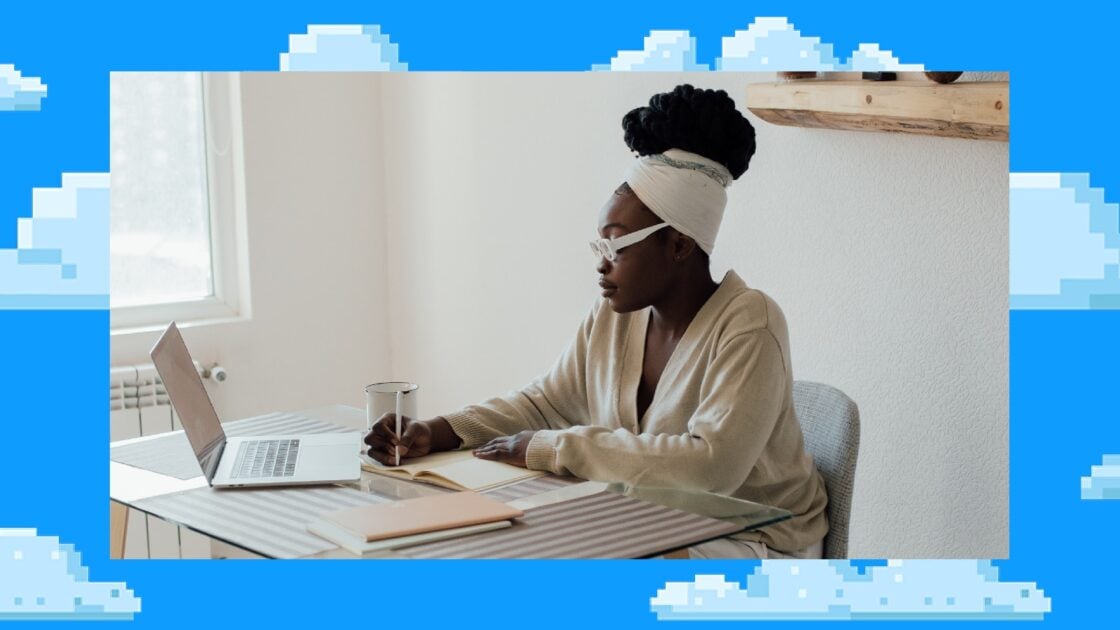How CBT and therapy helped my mental health recovery
While Aly has found her mental health recovery journey frustrating at times, it is helping her have the life she knows she deserves.

I started my mental health recovery journey because I didn’t want to struggle anymore.
When my dad approached me when I was 16 and asked me if I would be open to going to counselling, it felt like all my prayers had been answered. I had tried to open up about my mental health struggles multiple times, but every time it was much easier to dismiss it as puberty or just part of being a teenage girl. I felt I had no choice but to accept the fact that I would probably be struggling by myself for the foreseeable future, but I knew I did not want to continue feeling the way I did every day.
Starting Cognitive Behavioural Therapy (CBT)
A few weeks later I was attending my first counselling session, but that didn’t last long as I didn’t feel like my counsellor understood me. At that point, I had hit a new low mentally, and my parents set me up to attend Cognitive Behavioural Therapy (CBT) with a new clinic. I started attending weekly therapy sessions for my now-diagnosed depression, anxiety, and OCD. I was also prescribed antidepressants. As horrible as I was feeling, I felt hopeful for the first time in years. I was so tired of my brain messing up everything for me, and I finally felt like there was a support network for me to actively help me get better.
The thing about mental health recovery is that people treat it as black and white – you need help, you need help, you get help, and suddenly everything is all sunshine and rainbows. You never hear people discuss the grey area in between.
My expectations of recovery were somewhat simple – attend a few therapy sessions and I’ll feel better soon, right? Surely therapy would flick off the switch that had my negative emotions working overtime. I thought that between a few weeks of attending CBT weekly and taking my antidepressants daily, I would be back to ‘normal.’ But after a few months with no change, I was beginning to get frustrated.
The reality of mental health therapy
I was under the impression that once I had started opening up about my issues, I would understand why I felt the way I did, so I would then be able to avoid feeling like that in the future. I thought I would leave every session feeling better, like how you see people in shows and movies saying they feel so much better after getting things off their chest. Instead, I would leave my therapist’s office feeling drained and depressed, crawling into my bed to sleep as soon as I could.
I wanted to quit hundreds of times. I felt like I was doing it all wrong, but my therapist would reassure me every time that it was perfectly normal to feel like this. I was getting increasingly impatient with the speed of my therapy. I would keep a mental checklist of issues I wanted to discuss in the week leading up to my next session, but we would usually spend an hour talking about an issue that I felt paled in comparison to my other problems.
I kept going out of both determination and stubbornness; I was determined to get better, as I did not see any other options if therapy didn’t work, and I was too stubborn to quit. I went every week, feeling at some level like it was a waste of my time, but I knew that I had gotten to a point where if I didn’t continue with my therapy, I would continue feeling the way I had before, and that simply wasn’t an option for me.
Realising my mental health recovery tools were working
The moment I realised I was a lot better than I had thought was when I sat my mocks in Sixth Year. I had been going to therapy for just over a year at that point with minimal results, but as I left the exam hall after my last exam, it occurred to me that I didn’t have a panic attack once during my last-minute prep for the exams.
My anxiety and depression had made panic attacks and meltdowns a regular part of my exam routine for the last few years, to the point where I barely managed to sit half my fifth year exams and struggled through my Autumn sixth year exams. I could have cried with the discovery, I felt so relieved that after struggling for so long I was finally seeing results. I knew the journey wasn’t over yet, but it gave me the confidence I needed to keep going.
I finished my therapy and went off my medications a year ago, and now I’m able to cope with things I never thought I would. I have never felt prouder of myself than the day I was officially discharged from the clinic I was attending. I’m proud to say that even though the past year of my life has been one of the worst, I’ve been able to manage my panic attacks and move forward.
I still have my bad days, but I now know how to figure out the root cause and manage my emotions accordingly. I don’t like to think about where I would be if I had never opened myself up for help, but instead focus on how I am now. I am able to recognise my triggers and when I’m getting close to an episode, so I have my little tricks to stay calm. I know that lavender calms me down when I’m having a panic attack, so I keep a little lavender roll-on in my pockets at all times to dab under my nose and breathe in slowly.
How letting go of shame helps my mental health recovery
There’s no shame in being open about your struggles – it made my life a lot easier with friends, family and college lecturers being aware and assisting when things got hard. In college last year, I wrote an essay on mental health, but ironically, I was also going through a rough mental patch at the time and had to go home for a few days to put myself back together. When I contacted my lecturer about an extension, their response was so lovely and understanding I cried tears of joy.
Whilst putting yourself in such a vulnerable position for as long as you feel is necessary is incredibly difficult, the end result is more than worth it. The key for me was sticking with it and patience, and I would remind myself every day why I kept going. I kept a mental checklist of all the things in my future that I deserved to see – going to college, the future friends I would make, and the concerts I would see. Now that it’s been over a year since I truly felt happier and I’ve gotten a taste of what I might have missed, I’m not willing to give any of it up.
Feeling overwhelmed and want to talk to someone?
- Get anonymous support 24/7 with our text message support service
- Connect with a trained volunteer who will listen to you, and help you to move forward feeling better
- Whatsapp us now or free-text SPUNOUT to 50808 to begin.
- Find out more about our text message support service
If you are a customer of the 48 or An Post network or cannot get through using the ‘50808’ short code please text HELLO to 086 1800 280 (standard message rates may apply). Some smaller networks do not support short codes like ‘50808’.






